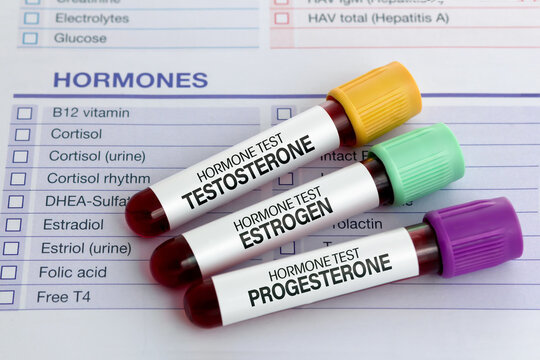
Hormones are integral to maintaining balance and health in the body, influencing everything from mood and energy levels to metabolism and reproductive health. However, detecting hormonal imbalances requires careful consideration of timing, as hormones naturally fluctuate throughout the day and month. At Tulsi Wellness Club, we emphasize a holistic approach to health, which includes understanding the optimal times for testing to ensure accurate and actionable results.
In this article, we’ll explore the best times to test for hormone imbalances and why timing is crucial for obtaining precise and meaningful data.
Understanding Hormonal Fluctuations
Hormones are not static; they fluctuate based on various factors including the time of day, menstrual cycle, and life stages. These fluctuations are normal and can significantly impact test results. Therefore, knowing when to test can help you get a clearer picture of your hormonal health.
Key Factors Influencing Optimal Testing Times
Time of Day
Hormone levels can vary throughout the day, making the timing of your test important for accuracy. Here are some key hormones and their typical fluctuation patterns:
-
Cortisol: Known as the “stress hormone,” cortisol typically follows a daily rhythm, peaking in the morning and declining throughout the day. To assess cortisol levels, it's best to test in the early morning, shortly after waking up, to capture the peak level.
-
Melatonin: This hormone regulates sleep and is usually tested in the evening or night when levels are higher. Testing melatonin at the right time can provide insights into sleep disorders or circadian rhythm disruptions.
-
Sex Hormones (Estrogen, Progesterone, Testosterone): These hormones fluctuate based on the menstrual cycle or life stage. Testing at specific points in the cycle or age can give a more accurate representation of hormonal balance.
Menstrual Cycle
For women, hormonal levels can vary significantly throughout the menstrual cycle. Here’s how the timing of testing can be adjusted based on the phase of the cycle:
-
Follicular Phase (Days 1-14): Hormones such as estrogen and follicle-stimulating hormone (FSH) are typically tested in the early part of the cycle, often between days 3 to 5, to assess ovarian function and baseline hormone levels.
-
Ovulation (Around Day 14): Testing during ovulation can provide information about hormone levels related to fertility and ovulation status.
-
Luteal Phase (Days 15-28): Progesterone levels are often tested in the latter part of the cycle, around days 21 to 23, to evaluate luteal phase function and assess issues like premenstrual syndrome (PMS) or luteal phase defects.
Life Stages and Conditions
Hormonal testing may need to be adjusted based on life stages or specific conditions:
-
Perimenopause and Menopause: Hormonal fluctuations are common during perimenopause and menopause. Testing at different times can help assess changes and guide treatment options.
-
Pregnancy: Hormone levels change significantly during pregnancy. Testing should be timed based on the trimester and specific concerns, such as thyroid function or gestational diabetes.
-
Postpartum: Hormonal changes after childbirth can affect mood, energy, and overall health. Testing at various intervals postpartum can help manage these changes effectively.
When to Test for Specific Hormonal Issues
Adrenal Function
If you’re experiencing symptoms of adrenal fatigue or stress-related issues, testing cortisol levels in the morning can provide valuable information about adrenal function. Additional tests throughout the day can help assess cortisol rhythm and overall adrenal health.
Thyroid Health
Thyroid hormones such as TSH, T3, and T4 can be tested at any time of day, but consistency in timing is important for accurate comparisons. Thyroid function tests are often done in the morning to align with typical lab protocols.
Fertility and Reproductive Health
For fertility evaluations or issues related to the menstrual cycle, testing hormones like estrogen, progesterone, and FSH at specific points in the cycle is crucial. This helps to identify potential imbalances affecting ovulation, menstrual regularity, and reproductive health.
How to Prepare for Hormone Testing
-
Follow Instructions: Adhere to any specific instructions provided by your healthcare provider or testing laboratory regarding timing, sample collection, and preparation.
-
Maintain Consistency: Try to test at the same time of day or cycle phase each time for consistency in monitoring changes over time.
-
Avoid Interferences: Certain factors such as medication, stress, or dietary changes can affect hormone levels. Inform your healthcare provider of any relevant factors that might impact your results.
Conclusion
Understanding the optimal times to test for hormonal imbalances is essential for obtaining accurate and meaningful results. At Tulsi Wellness Club, we believe that timing is a crucial aspect of hormone testing, and aligning tests with natural hormonal rhythms and life stages can provide a clearer picture of your hormonal health.
Whether you’re dealing with fatigue, mood changes, reproductive health concerns, or other symptoms related to hormonal imbalances, working with a knowledgeable healthcare provider to time your tests appropriately can help guide effective treatment and support a balanced, healthy life.
If you’re considering hormone testing or seeking to address hormonal health concerns, consult with a healthcare professional who can help determine the best testing strategy and timing for your specific needs.
Dr. Devin Stone
Contact Me


